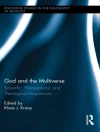A central conclusion developed and defended throughout the book is that epistemic autonomy is necessary for knowledge (both knowledge-that and knowledge-how) and in ways that epistemologists have not yet fully appreciated. The book is divided into five chapters. Chapter 1 motivates (using a series of twists on Lehrer’s True Temp case) the claim that propositional knowledge requires autonomous belief. Chapters 2 and 3 flesh out this proposal in two ways, by defending a specific form of history-sensitive externalism with respect to propositional knowledge-apt autonomous belief (Chapter 2) and by showing how the idea that knowledge requires autonomous belief-understood along the externalist lines proposed-corresponds with an entirely new class of knowledge defeaters (Chapter 3). Chapter 4 extends the proposal to (both intellectualist and anti-intellectualist) knowledge-how and performance enhancement, and in a way that combines insights from virtue epistemology with research on freedom, responsibility, and manipulation. Chapter 5 concludes with a new twist on the Value of Knowledge debate, by vindicating the value of epistemically autonomous knowledge over that which falls short, including (mere) heteronomous but otherwise epistemically impeccable justified true belief.
J. Adam Carter
Autonomous Knowledge [PDF ebook]
Radical Enhancement, Autonomy, and the Future of Knowing
Autonomous Knowledge [PDF ebook]
Radical Enhancement, Autonomy, and the Future of Knowing
Acquista questo ebook e ricevine 1 in più GRATIS!
Lingua Inglese ● Formato PDF ● Pagine 192 ● ISBN 9780192662392 ● Casa editrice OUP Oxford ● Pubblicato 2022 ● Scaricabile 3 volte ● Moneta EUR ● ID 8282176 ● Protezione dalla copia Adobe DRM
Richiede un lettore di ebook compatibile con DRM












